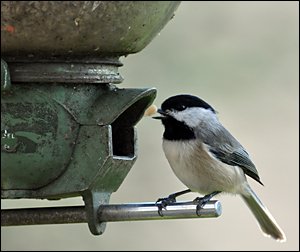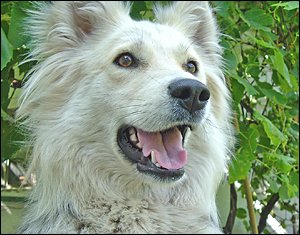 I’m a dog lover, and currently own two dogs, Maya and Chief. Maya is almost 4.5 and Chief is 2.5 years old. I had Maya for 2 years before deciding to get Chief, and it was not an easy decision. I put a lot of work into Maya to make her an extremely well behaved, obedient dog, and I didn’t want to mess up a good thing by bringing another dog into the picture.
I’m a dog lover, and currently own two dogs, Maya and Chief. Maya is almost 4.5 and Chief is 2.5 years old. I had Maya for 2 years before deciding to get Chief, and it was not an easy decision. I put a lot of work into Maya to make her an extremely well behaved, obedient dog, and I didn’t want to mess up a good thing by bringing another dog into the picture.
In the end, I decided to get another dog and it has been absolutely amazing. The two dogs are crazy about each other, are best friends and playmates and you really couldn’t ask for a better situation. Still, there are few things I can share from my experience that you should definitely look out for and consider before getting another canine.
Is Your First Dog Well Behaved?
Before you get a second dog, be sure that you have done a solid job training your first one. One important reason is that your second dog will learn from your first dog, and if your first dog has bad habits and is poorly trained, you’re asking for a bad experience. A second dog should never be a “make-up” for the first dog you didn’t put enough effort into. Spend more time with your first dog and prove that you can be a good dog trainer before getting a second. While the two dogs may play together, it certainly is not a fix to go out and get a second dog that will tire your other dog out.
 Connecting with nature is great. It can bring calm to a person. It can also provide an opportunity to stop the daily chaos and enjoy life. However, sometimes not so pleasant things can interrupt your enjoyment, especially when you find maggots in your bird feeder. This post is here to help, offering up solutions to five common birding problems so you can get back to enjoying nature.
Connecting with nature is great. It can bring calm to a person. It can also provide an opportunity to stop the daily chaos and enjoy life. However, sometimes not so pleasant things can interrupt your enjoyment, especially when you find maggots in your bird feeder. This post is here to help, offering up solutions to five common birding problems so you can get back to enjoying nature.  In many homes, pets are considered family. People call their pets their children, but don’t remember one of the most important responsibilities of owning a pet: taking care of their teeth! Just like kids, dogs and cats can develop gum disease, cavities and plaque build up. Dental care for pets is often underestimated but is something that should not be ignored.
In many homes, pets are considered family. People call their pets their children, but don’t remember one of the most important responsibilities of owning a pet: taking care of their teeth! Just like kids, dogs and cats can develop gum disease, cavities and plaque build up. Dental care for pets is often underestimated but is something that should not be ignored. I had been treating my dog, Scout, for ear infections for a few years until my vet shed light on the underlying problem. He has allergies. All his life I just thought Scout was prone to ear infections, and had a few odd habits, but they were all signs that he had allergies. If your dog has been exhibiting the following behaviors he/she may have allergies too, and it’s important to discuss it with your vet.
I had been treating my dog, Scout, for ear infections for a few years until my vet shed light on the underlying problem. He has allergies. All his life I just thought Scout was prone to ear infections, and had a few odd habits, but they were all signs that he had allergies. If your dog has been exhibiting the following behaviors he/she may have allergies too, and it’s important to discuss it with your vet. With so much evidence pointing to the benefits of living naturally, a lot of us have started to wonder about how to best treat their pets. We try to avoid processed junk food and carefully read the labels of the boxes and bags we find at the grocery store. Shouldn’t we be giving the same consideration to the diets of our dogs?
With so much evidence pointing to the benefits of living naturally, a lot of us have started to wonder about how to best treat their pets. We try to avoid processed junk food and carefully read the labels of the boxes and bags we find at the grocery store. Shouldn’t we be giving the same consideration to the diets of our dogs?